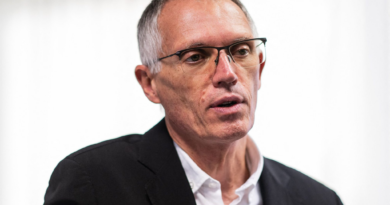Europe has caught a workplace absenteeism bug, turning one of the continent’s biggest advantages into a multi-billion euro strain
Calling in sick from work is not just a one-off episode in Europe. It’s now become a widespread trend among employees, making the “sick man” monicker that’s chased European economies into a reality.
Take France, for instance. The number of people taking sick leave has risen so sharply in recent years that it has figured into the French budget as an economic issue with a billion-euro price tag. German employees take over 19 days off due to illness, marking a record high when the economy is riddled with challenges. It’s costing the economy €200 billion annually, or the equivalent of 4.5% of the German GDP.
The picture isn’t too different in the Nordics, where work-life balance is embedded into the culture. In fact, Norway is leading the charge in terms of absenteeism, with the number of sick days taken by workers reaching a 15-year high, according to Bloomberg.
Unlike vacation days, which employees are entitled to a specific number of, sick days are taken on a need basis. There are limitations on how and when people utilize them across different parts of Europe. But as the rate of sickness-related absences spikes, they’re starting to hurt economies grappling with worker shortages and low productivity.
In the U.K., employee sickness has cost the economy £30 billion over five years, according to an IPPR report from July. Leaders are paying more attention now than ever: former Prime Minister Rishi Sunak called the “sick note culture” a threat to the social safety net.
“Increasing sickness absence levels in the U.K. cause not only an enormous cost to the economy but significant implications for businesses, which are left short-staffed and with major skills gaps in their workforces,” Lydia Christie, legal director at law firm Howard Kennedy, told Fortune. “This also adds burden to those staff at work who are required to try to fill the gaps.”
What is the matter with Europe, and why is sickness-linked absenteeism such a problem in the region?
Why is so much of Europe on sick leave?
The factors differ depending on where you look, but they are related to one or more of the following: mental health, an overly generous welfare system, and cultural factors.
People are not just taking more sick leaves, they are also absent for longer. The COVID-19 pandemic drew people’s attention to physical and mental health concerns, such as long-term sickness, depression, and anxiety, which have now become a big driver of workplace absenteeism. That’s also set off a larger problem of worker inactivity in the U.K.
Europe has always offered generous workplace welfare benefits, making it an example for other regions to aspire to. But those perks might be hurting it. In France, for example, the national health insurance kicks in on the fourth day someone is out sick and pays them about 50% of their salary within a certain threshold. Germany allows workers to take up to six weeks of paid sick leave, which critics have slammed as too much.
There are also broader cultural factors at play, too. Gallup found in 2022 that Europeans “work to live” rather than “love to work,” resulting in lower employee engagement than other parts of the world.
Top executives have noticed employees’ lax attitudes trickle down to the workplace.
Nicolai Tangen, the CEO of Norway’s $1.6 trillion sovereign wealth fund, said earlier this year that Europeans don’t work as hard as their American peers and lack career ambition in their quest for work-life balance.
Absenteeism isn’t helping anyone—neither companies nor the economy. But if they’re taken when employees genuinely need them, they improve productivity, said OECD’s employment expert Christopher Prinz.
“We want people who are sick to be on sick leave. There’s a strong argument for sickness schemes actually helping productivity, health and labour market participation,” he told the Financial Times last month.
Countries must strike a delicate balance between encouraging employees to take sick leave and dissuading them from exploiting it, which can result in economic strain. But this might be the key to Europe’s brewing productivity battle, making it all the more crucial for policymakers and companies to play the cards right.



